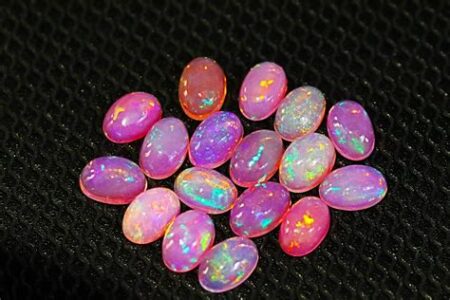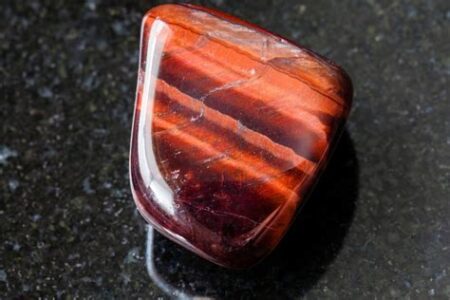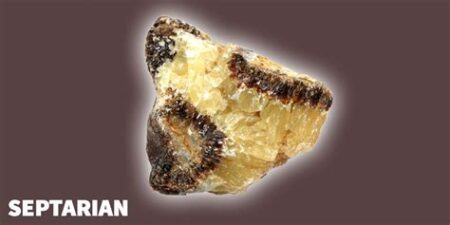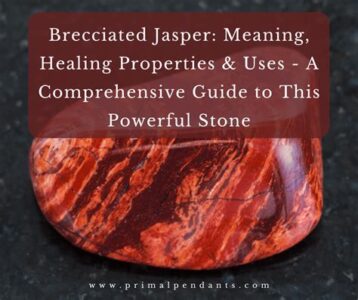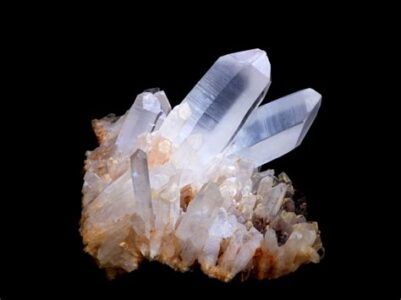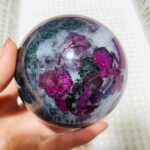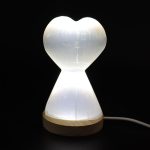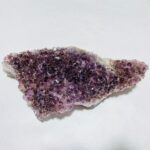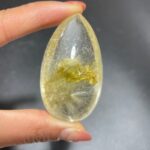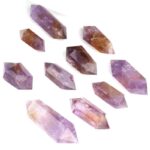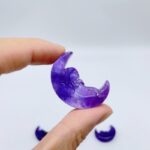Immerse yourself in the enchanting world of UV reactive crystals, where ordinary minerals transform into ethereal beacons of light under ultraviolet illumination. Prepare to be mesmerized as we explore the captivating properties, applications, and boundless potential of these luminous gems.

Fluorescence: The Dance of Invisible Rays
At the heart of the UV reactive crystal phenomenon lies fluorescence, a fascinating optical property where certain materials absorb ultraviolet (UV) radiation and re-emit it as visible light. This mesmerizing transformation occurs when high-energy UV photons interact with electrons within the crystal lattice, causing them to leap to higher energy levels. As the electrons return to their original state, they release excess energy in the form of visible light.
Crystalline Symphony of Hues
The spectrum of UV reactive crystals is as diverse as the minerals themselves, ranging from vibrant blues and greens to ethereal pinks and oranges. Each crystal possesses a unique molecular structure that dictates its emission wavelength, resulting in a kaleidoscope of luminescent hues.
| Crystal | UV Emission |
|---|---|
| Calcite | Orange-red |
| Fluorite | Blue, green, purple |
| Scheelite | Yellow-green |
| Zincite | Orange-red |
| Sodalite | Blue |
Applications: Illuminating Diverse Industries
UV reactive crystals are not mere curiosities; they play vital roles in various industries, including:
Forensic Investigation: Crime-Solving Luminescence
UV reactive crystals assist forensic scientists in identifying blood, bodily fluids, and other forensic evidence at crime scenes. The crystals absorb UV light and emit visible fluorescence, making these substances more easily detectable.
Medical Diagnostics: Illuminating Diagnostics
The fluorescence of UV reactive crystals finds applications in medical diagnostics. Doctors use these crystals to detect cancer cells, perform dental examinations, and diagnose skin conditions.
Industrial Defect Detection: Highlighting Imperfections
UV reactive crystals aid in industrial defect detection, revealing cracks, voids, and other imperfections in metal castings, welds, and plastic products. The crystals absorb UV light and emit visible fluorescence, marking the areas requiring further inspection.
Mineralogical Research: Insights into Earth’s Treasures
Geologists and mineralogists utilize UV reactive crystals to identify and characterize minerals. The unique fluorescence of each crystal type provides valuable insights into its composition and origin.
Potential Applications: Unlocking the Future of Luminescence
The potential applications of UV reactive crystals extend far beyond current uses. By embracing our imaginations, we can envision a future where these crystals revolutionize industries and ignite societal progress.
Light-Emitting Devices: Brighter, Longer-Lasting Luminescence
UV reactive crystals could potentially enhance the efficiency and lifespan of light-emitting devices, such as LEDs and OLEDs. By incorporating these crystals into the devices, manufacturers can create brighter and longer-lasting lighting solutions.
Biomedical Engineering: Targeted Illumination and Diagnostics
UV reactive crystals hold promise for targeted biomedical applications. Researchers could engineer these crystals to emit therapeutic light, enabling precise treatment of specific tissues or cells. Additionally, the fluorescence of UV reactive crystals could assist in early disease detection and diagnosis.
Artistic Expression: A Canvas of Luminescent Colors
The vibrant hues of UV reactive crystals could inspire new forms of artistic expression. Artists could incorporate these crystals into paintings, sculptures, and installations, creating works of art that come alive under ultraviolet illumination.
Quantum Computing: Exploring the Quantum Realm
Intriguing applications of UV reactive crystals await discovery in the realm of quantum computing. Researchers are exploring the potential of these crystals for quantum information storage and processing, harnessing their unique properties to advance this transformative field.
Strategies for Selecting UV Reactive Crystals: A Buyer’s Guide
Navigating the world of UV reactive crystals can be daunting, but by following these strategies, you can make informed purchases:
- Identify Your Application: Determine the intended use of the crystals, whether for forensic investigation, medical diagnostics, or artistic expression.
- Research Crystal Types: Explore the various types of UV reactive crystals available, including calcite, fluorite, and zincite. Consider their emission wavelengths and suitability for your application.
- Seek Quality Manufacturers: Partner with reputable manufacturers who provide high-quality crystals with consistent fluorescence.
- Consider Intensity: Evaluate the intensity of the crystal’s fluorescence under UV illumination. Brighter crystals produce more noticeable effects.
- Test and Verify: Before making a purchase, request samples or perform testing to verify the crystals’ performance under UV light.
Tips and Tricks: Maximizing Your Crystal Experience
Elevate your UV reactive crystal experience with these practical tips:
- Use Proper Lighting: Employ ultraviolet lights with emission wavelengths that correspond to the crystal’s absorption spectrum, ensuring optimal fluorescence.
- Create a Dark Environment: Minimize ambient light to enhance the visibility of the crystal’s fluorescence.
- Consider Shape and Size: Select crystals with shapes and sizes suitable for your intended use. Smaller crystals may be more portable, while larger crystals produce more pronounced fluorescence.
- Protect from UV Damage: Prolonged exposure to UV radiation can damage some crystals. Store them in dark and cool locations when not in use.
- Experiment with Different Crystals: Explore the unique fluorescence of various UV reactive crystals, creating stunning visual displays.
Conclusion: A Luminescent Tomorrow
UV reactive crystals possess unparalleled beauty and practical value, waiting to illuminate diverse industries and inspire human ingenuity. By embracing their captivating properties and exploring their untapped potential, we unlock a kaleidoscope of possibilities. From illuminating diagnostics to enhancing artistic expression, these crystals are poised to shape our future with their ethereal glow. Let us embrace the luminescent wonders of UV reactive crystals and pave the way for a brighter, more vibrant tomorrow.
FAQs for UV Reactive Crystals
Q: What is the difference between fluorescence and phosphorescence?
A: Fluorescence occurs when a substance emits visible light immediately upon absorbing UV radiation. Phosphorescence, on the other hand, involves the gradual release of light after the UV source is removed.
Q: Can UV reactive crystals be harmful?
A: Prolonged exposure to UV radiation can damage certain types of UV reactive crystals. It is important to store them properly and minimize direct exposure to UV light.
Q: How do I dispose of UV reactive crystals responsibly?
A: Consult with local waste management regulations to determine the appropriate disposal methods for UV reactive crystals in your area.

